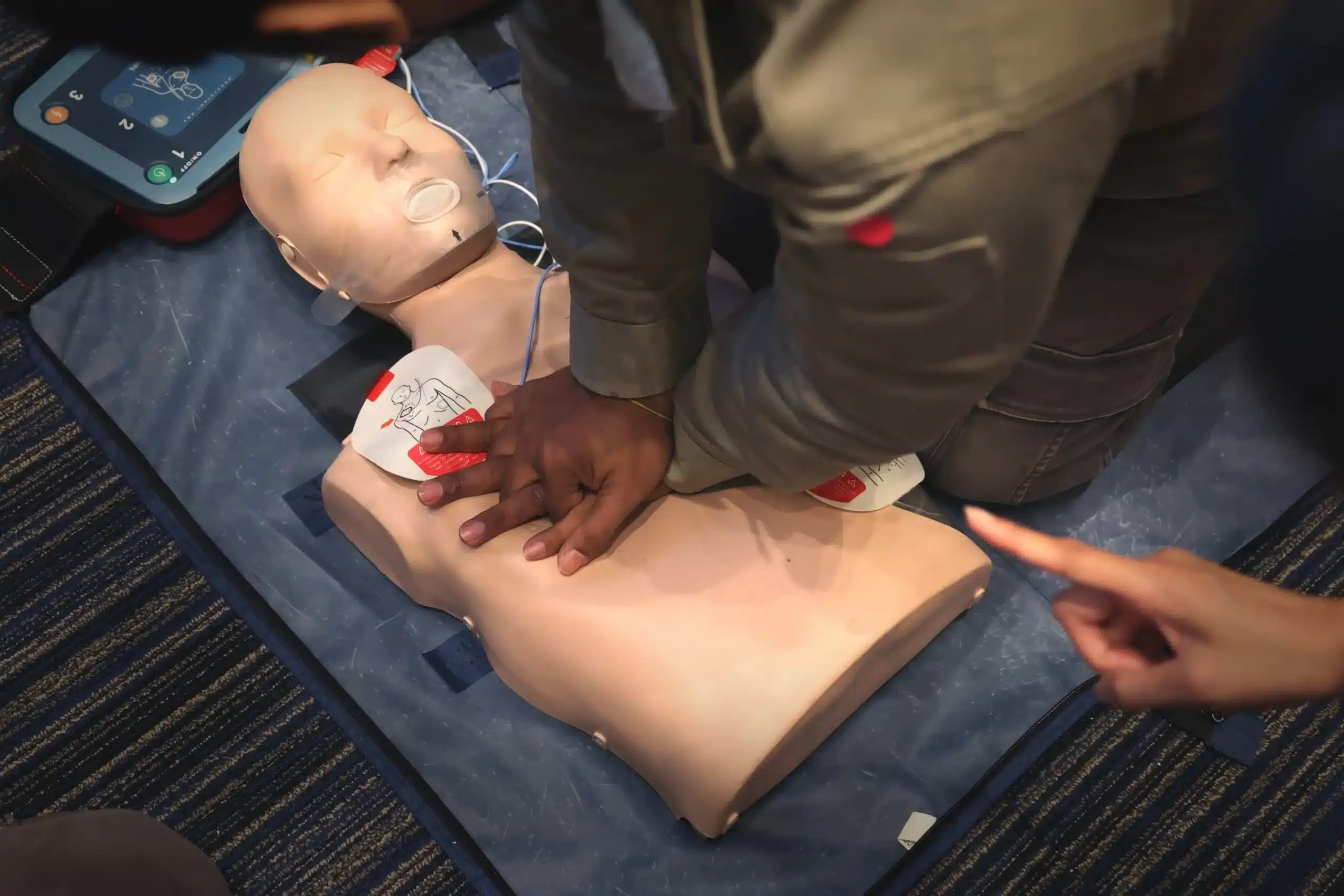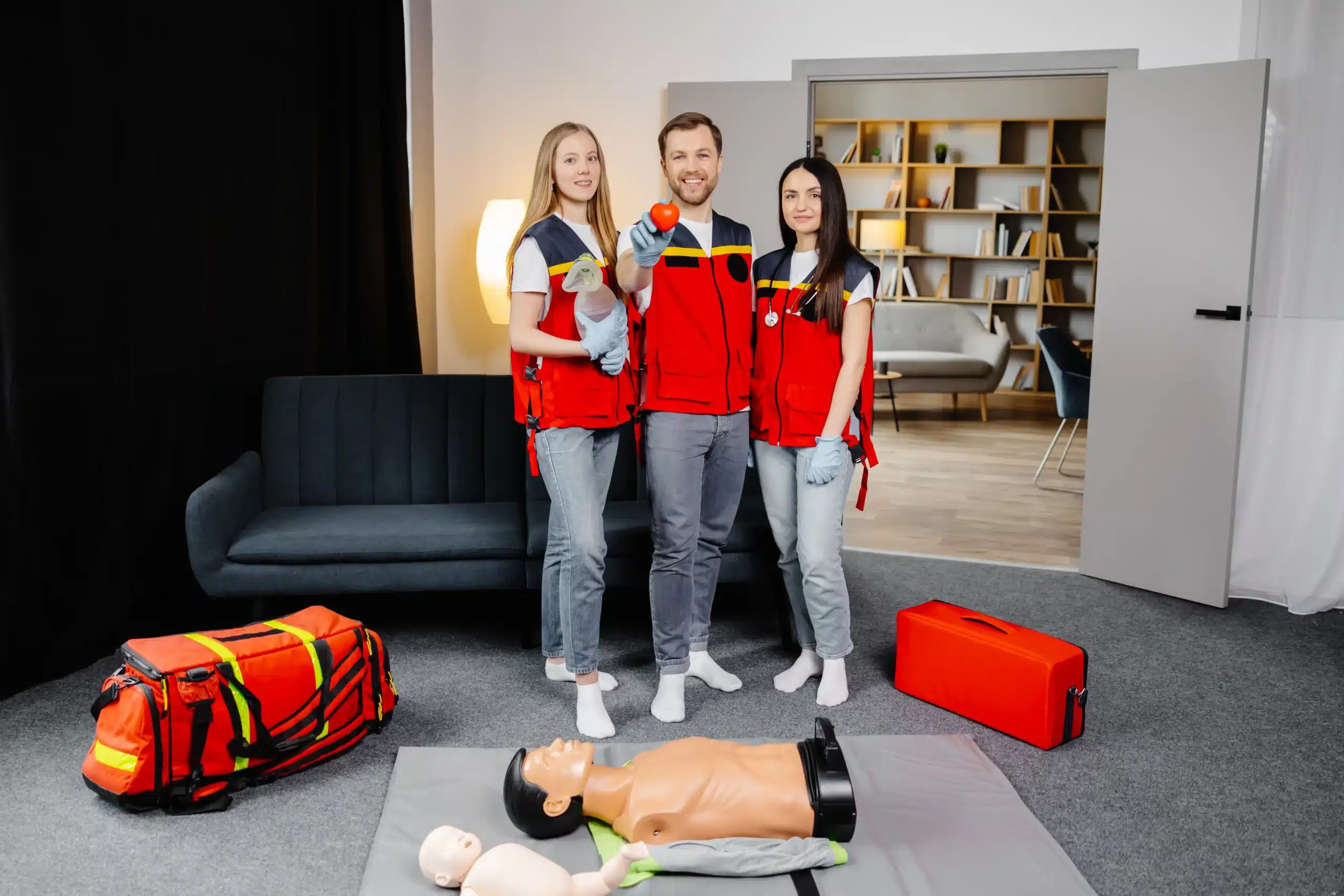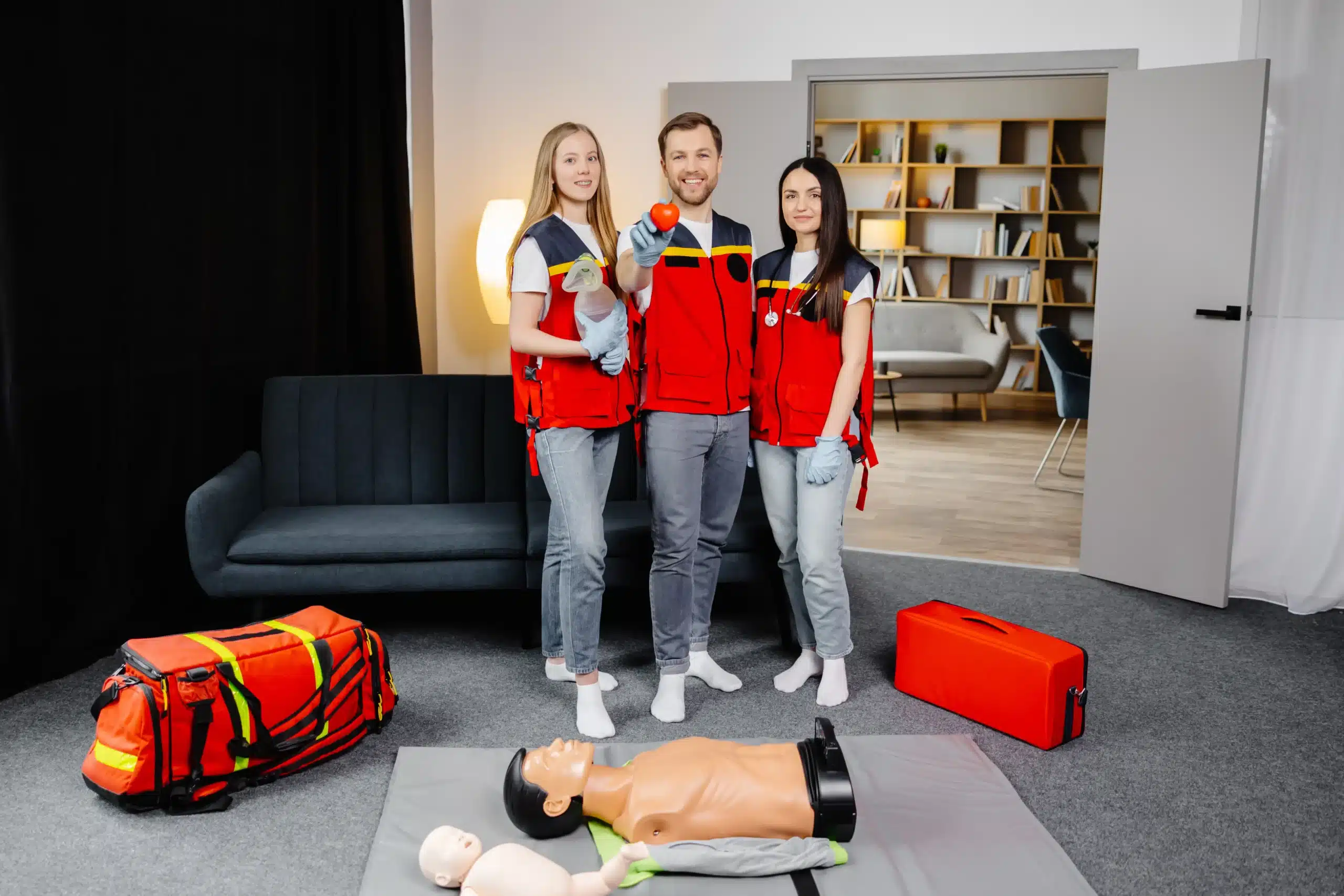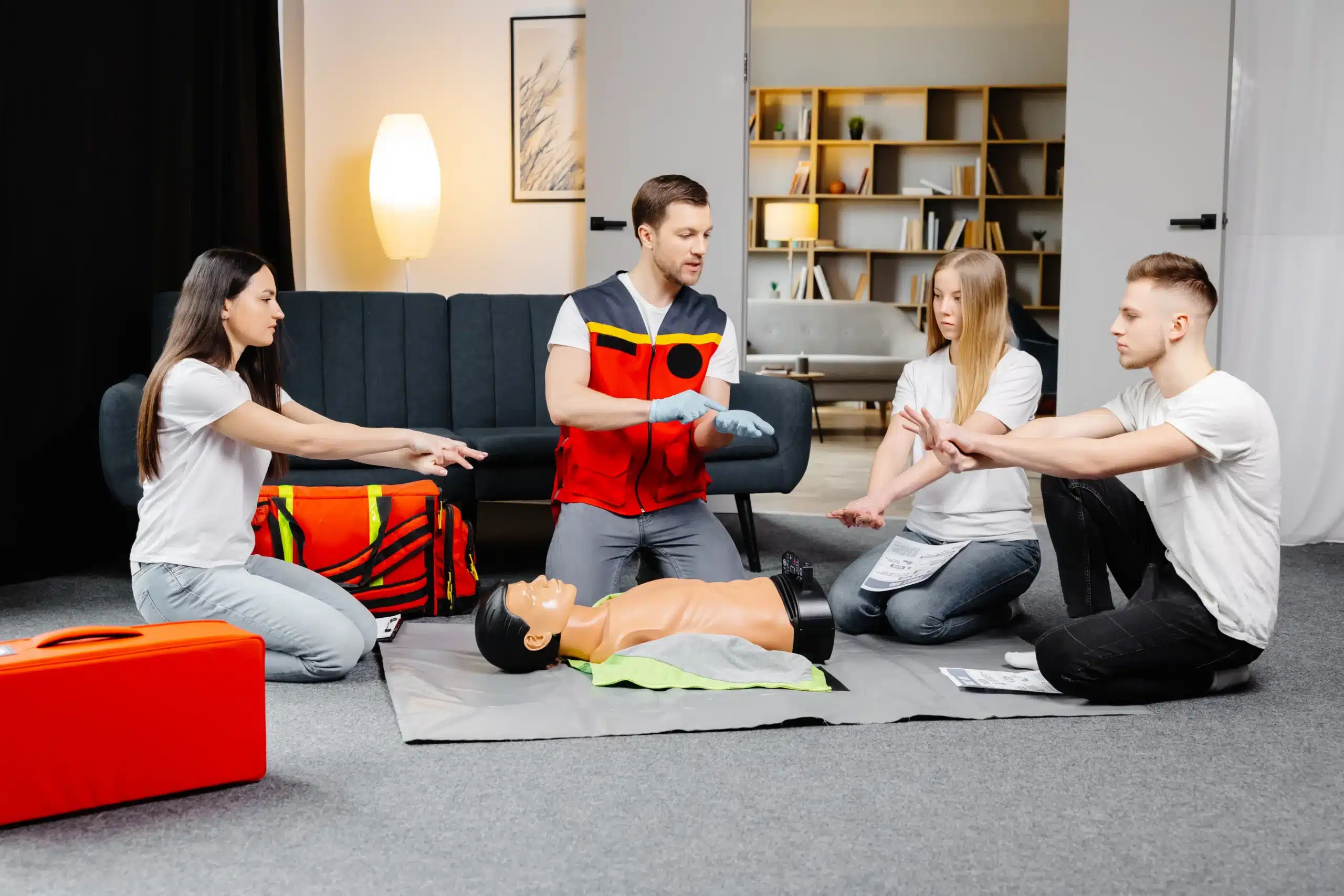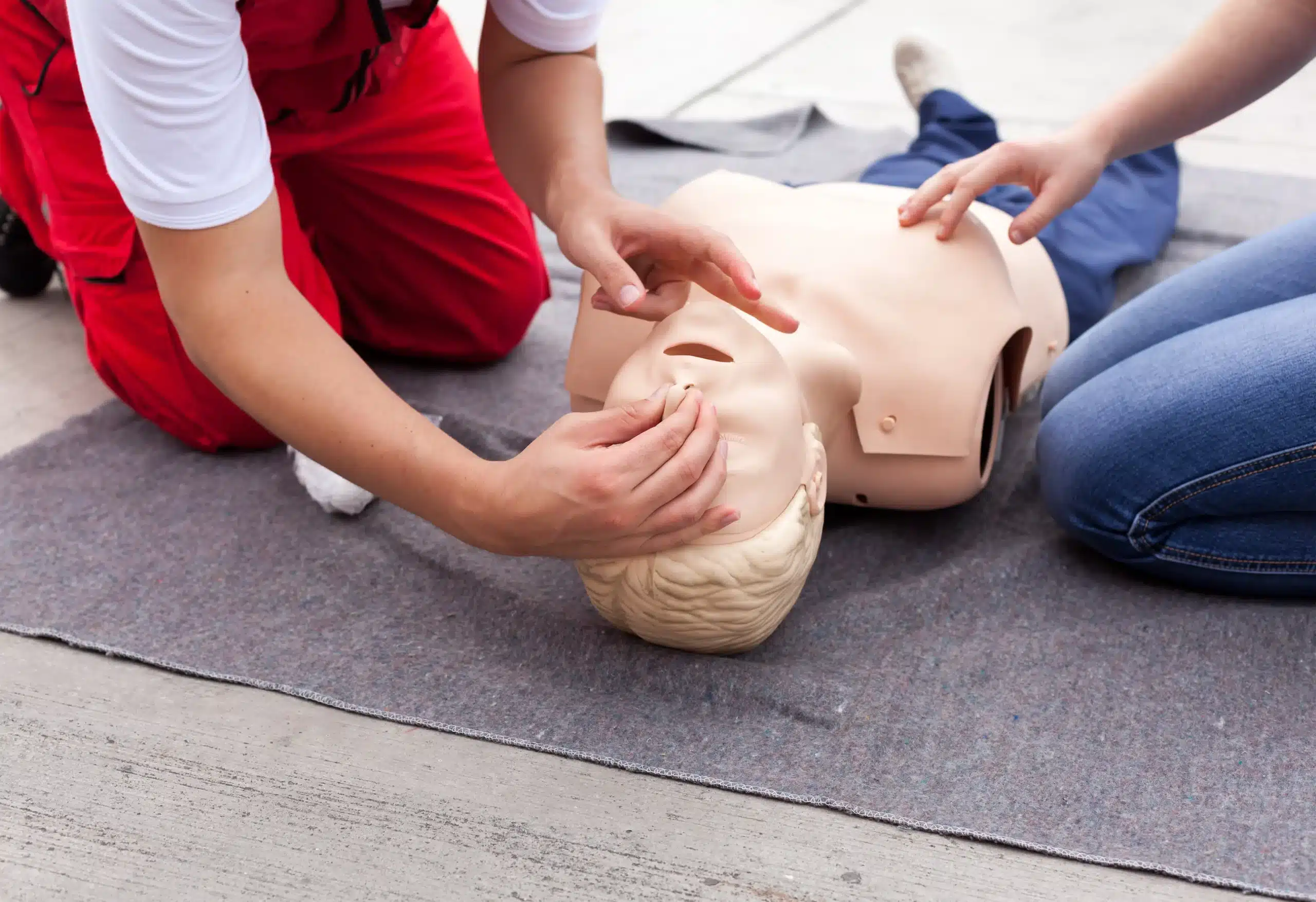As a parent, knowing that someone nearby is trained to handle a pediatric emergency brings immense peace of mind. For healthcare professionals, having the skills to confidently respond to such situations is not just a job requirement—it’s a calling. Pediatric Advanced Life Support (PALS) certification provides the knowledge and practical training needed to handle critical situations involving infants and children. This guide explores the ins and outs of PALS certification, focusing on Pediatric Advanced Life support courses in Napa. Whether you’re a seasoned healthcare provider, a childcare professional, or simply someone who wants to be prepared, this guide will help you understand the importance of PALS, find the right course in Napa, and navigate the certification process.
Key Takeaways
- PALS certification equips healthcare professionals with life-saving pediatric emergency skills: From respiratory distress to cardiac arrest, PALS training covers a wide range of critical situations, giving you the confidence to respond effectively.
- Choosing the right PALS course involves several key factors: Look for qualified instructors, a convenient format (online, in-person, or blended), and competitive pricing. Consider Safety Training Seminars in Napa for a comprehensive and affordable option.
- Staying current with PALS requires more than just initial certification: Renew your certification every two years and pursue continuing education opportunities to maintain your skills and knowledge at the highest level.
What is PALS?
What does PALS stand for?
PALS stands for Pediatric Advanced Life Support. It’s a specialized program designed to give healthcare providers the skills they need to respond to life-threatening emergencies in infants and children. The PALS course covers a wide range of critical situations, from respiratory distress to cardiac arrest, with a focus on fast, effective interventions. Think of it as advanced training that builds upon the foundation of basic life support. The training provides healthcare professionals with the knowledge and skills to assess and manage critically ill infants and children, ensuring the best possible outcomes for their young patients. For healthcare providers in Napa, Safety Training Seminars offers PALS certification courses.
Who Needs PALS Certification?
PALS certification is crucial for any healthcare professional regularly interacting with children. This includes physicians, nurses, paramedics, respiratory therapists, and emergency medical technicians. Essentially, anyone who might be the first responder in a pediatric emergency should consider PALS training. It’s also highly relevant for those working in pediatric intensive care units, emergency rooms, and other hospital settings. While not always mandatory, holding a current PALS certification demonstrates a commitment to providing the highest standard of care for young patients. Many employers, especially in healthcare settings, require it. Those seeking PALS certification in the Napa area can find comprehensive courses at Napa CPR Classes.
PALS Course Providers in Napa
Finding the right PALS course provider is crucial for receiving high-quality training. Here’s a rundown of providers offering PALS certification in Napa and the surrounding areas:
Safety Training Seminars
Safety Training Seminars is a woman-owned American Heart Association (AHA) Training Center offering a range of courses, including PALS, in Napa, CA. They prioritize convenient scheduling, providing classes seven days a week, and offer competitive pricing. With a focus on excellent customer service, they’re a popular choice for healthcare professionals and community members. Visit their PALS page for details and registration.
American Heart Association
The American Heart Association sets the standards for PALS training and accredits training centers. While they don’t directly offer courses, their website is a valuable resource for finding certified instructors and approved courses in your area. You can use their course locator to find options near you.
Napa CPR Training Center
The Napa CPR Training Center, part of Napa Valley College, offers AHA-certified CPR training. While their main focus is general CPR, it’s worth contacting them directly to see if they offer PALS or can recommend other local providers.
Bay Area CPR
Bay Area CPR recommends Safety Training Seminars as a provider of AHA PALS courses in Napa. This further establishes Safety Training Seminars as a go-to resource for PALS certification in the region.
American Red Cross
The American Red Cross also offers nationally recognized PALS certification. While they may not have a training center in Napa, their website can help you locate courses in nearby areas and provides details about their PALS curriculum.
Key Components of a PALS Course
Understanding the core components of a PALS course helps you prepare and know what to expect. Here’s a breakdown:
Course Curriculum
The PALS course curriculum focuses on recognizing and responding to life-threatening emergencies in infants and children. You’ll learn to assess a child’s condition, provide high-quality care during cardiac and respiratory events, manage shock, and administer post-resuscitation care. The course emphasizes critical thinking, problem-solving, and teamwork—essential skills in emergency situations. This detailed approach ensures you’re prepared to handle pediatric emergencies confidently. The American Heart Association offers more information on PALS training.
Skills Assessment
Before receiving your PALS certification, you’ll demonstrate your skills. Many providers, like those offering RQI classes, use online programs combined with in-person skills tests. These tests often involve computerized manikins, allowing you to practice in a realistic, yet controlled, environment. While an instructor might not be present during the test, support is typically available by phone. This blended approach allows for flexible learning and thorough skills evaluation. Bay Area CPR offers further information on skills assessments.
Certification Process
Once you’ve completed the course and skills assessment, you’ll receive your PALS Provider Course Completion eCard. This certification is generally valid for two years. Keeping your certification current ensures you’re up-to-date with the latest guidelines and best practices in pediatric advanced life support. This commitment to ongoing training is crucial for providing the highest quality of care. The American Heart Association provides details on PALS certification.
PALS Course Formats and Duration
Understanding the different PALS course formats and their time commitments can help you choose the best option for your schedule and learning style. Let’s break down the typical formats available:
Online Learning
Many PALS providers offer an online learning component, sometimes called eLearning or HeartCode PALS. This usually involves self-paced modules covering the core PALS concepts and principles. This flexible format allows you to study when and where it’s convenient for you, making it a popular choice for busy professionals. This online portion is typically followed by an in-person skills session. The Red Cross PALS program uses this blended learning approach.
In-Person Skills Sessions
The in-person skills session is a crucial part of PALS certification. This is where you’ll practice essential skills like CPR, using a defibrillator, and working as part of a team during pediatric emergencies. These sessions are typically hands-on and instructor-led, providing personalized feedback and guidance. The American Heart Association notes that these in-person skills sessions can take around five hours, including breaks.
Blended Learning
Blended learning combines the flexibility of online learning with the practical application of in-person skills sessions. You’ll complete the cognitive portion of the course online at your own pace, then attend an in-person session to demonstrate your skills and receive feedback from an instructor. This approach offers a balanced learning experience and is often the preferred method for PALS certification. The AHA provides a helpful overview of blended learning for PALS.
What to Expect in a PALS Course
So, you’ve decided to take a PALS course. Great! Knowing what to expect can make the whole process smoother and less stressful. Here’s a breakdown of how PALS courses typically work:
Required Materials
PALS courses use a blended learning format, meaning you’ll complete online coursework and then attend an in-person skills session. This offers flexibility and lets you learn at your own pace. For the online portion, you’ll need a computer or tablet with reliable internet access. The in-person session will involve hands-on practice, so comfortable clothing is recommended. Specific materials may vary, so check with your chosen PALS provider for a detailed list.
Pre-Course Study Tips
Before your in-person skills session, you’ll complete the online portion through the RQI (Resuscitation Quality Improvement) program. This usually takes about three to four hours. My advice? Watch the videos and review the materials carefully. This prep work significantly increases your chances of passing the skills test. Think of it like studying for any important exam—the more prepared you are, the better you’ll perform.
Hands-On Training
The in-person skills session focuses on practical application and typically lasts around five hours, including breaks. During this time, you’ll work with instructors to practice the skills you learned online. The PALS Provider Course covers a range of critical skills, from recognizing respiratory emergencies to performing high-quality CPR. You’ll also learn about effective team dynamics, a crucial element in emergency situations. Don’t be afraid to ask questions—your instructors are there to help you master these life-saving techniques.
PALS Course Costs
Average Napa Pricing
PALS (Pediatric Advanced Life Support) courses in Napa, California, typically cost around $250 for a standard class. This usually covers comprehensive training materials, instruction, and the certification exam. For a more personalized learning experience, private PALS classes are also available, generally priced around $300. This reflects the specialized nature of the training and the expertise involved. Safety Training Seminars offers competitive pricing while maintaining the high standards of the American Heart Association. We encourage you to compare our rates with other providers.
Discounts and Promotions
We know that cost can be a factor when considering PALS certification. To make this training more accessible, Safety Training Seminars regularly offers discounts and promotions. Check our website for current promotions to save on your PALS certification. You can also sign up for our email list to stay updated on upcoming discounts and special offers. We believe everyone should have access to high-quality PALS training, and we’re committed to making it affordable. Learn more about our PALS courses.
Instructor Qualifications
When your child’s life is on the line, you want assurance that the person training you to handle that emergency is highly qualified. Choosing a PALS course with skilled instructors is crucial for effective training. Here’s what to look for:
Healthcare Background
PALS instructors should possess a strong healthcare background. This practical experience translates to a deeper understanding of pediatric emergencies. For example, at Safety Training Seminars, instructors are well-versed in various disciplines, including CPR, BLS, ACLS, PALS, and First Aid. This breadth of knowledge ensures they can effectively teach pediatric life support techniques and provide comprehensive safety training. Look for providers who prioritize real-world experience when selecting their instructors.
Teaching Experience
Beyond clinical expertise, strong teaching skills are essential for PALS instructors. Qualified instructors undergo thorough training covering pediatric assessment, basic life support, resuscitation strategies, and pediatric pharmacology. This extensive training equips them to explain complex concepts clearly and guide students through hands-on practice. An experienced instructor can significantly impact your learning.
AHA Certification
The gold standard for PALS instructors is certification through the American Heart Association (AHA). This rigorous process involves both written and practical exams, ensuring instructors meet the AHA’s high standards. AHA certification also indicates the instructor is current on the latest guidelines in pediatric advanced life support, so you are learning the most current techniques. When choosing a PALS course, confirm the instructors hold current AHA certifications.
Choosing a PALS Provider in Napa
Finding the right PALS provider is crucial for a successful learning experience. With several options in Napa, consider these key factors before deciding.
Factors to Consider
First, confirm the provider’s certification and accreditation. Make sure their courses align with the American Heart Association’s standards for high-quality training and a recognized certification. Instructor qualifications are also important. Look for providers with experienced instructors and strong healthcare backgrounds, like those at Safety Training Seminars, for practical insights and effective instruction. Finally, consider course availability and look for a provider offering flexible scheduling options, such as daily courses, to fit your busy schedule.
Comparing Courses
Once you’ve identified a few potential providers, compare what they offer. Some may specialize in certain areas or offer a broader selection of AHA courses beyond PALS. Consider the training formats too. Some providers offer blended learning, combining online learning with in-person skills sessions. Others might stick to traditional classroom settings. Supporting a local provider, like those mentioned in this Napa CPR resource, can also contribute to a better prepared community.
Maintaining PALS Certification
Keeping your PALS skills sharp is essential for providing the best possible care. This section covers how to maintain your certification and stay at the forefront of pediatric care.
Renewal Requirements
Your PALS certification is valid for two years. To continue practicing, you’ll need to renew it before it expires. This ensures you’re always equipped with the most current knowledge and techniques in pediatric advanced life support. After successfully completing both portions of the PALS course, you’ll receive your two-year certification. Staying current with these practices is crucial for delivering effective care.
Continuing Education
Beyond renewing your certification, ongoing learning is key for staying at the top of your game. The PALS course teaches you how to assess, recognize, and respond to life-threatening emergencies in children, but medicine is constantly evolving. Continuing education opportunities, such as workshops, online modules, and conferences, can help you refine your skills and learn about the latest advancements. These resources often use blended learning approaches, combining online learning with in-person skills sessions, to make training more convenient and effective. They also emphasize critical thinking, problem-solving, and teamwork—vital skills for any medical professional, especially in emergencies. Staying committed to continuous learning ensures you’re always prepared to provide the highest quality care. Organizations like the American Red Cross offer various continuing education options for PALS-certified professionals.
Related Articles
- PALS Classes in Napa, CA – Napa CPR Classes
- Online PALS Classes in Napa: Your Complete Guide – Napa CPR Classes
- PALS HeartCode in American Canyon: Your Complete Guide – Napa CPR Classes
- Advanced Cardiac Life Support (ACLS) in American Canyon – Napa CPR Classes
- ACLS Renewal in Napa: Your Complete Guide – Napa CPR Classes
Frequently Asked Questions
How long is PALS certification valid? PALS certification is valid for two years. Renewal is required to stay current with the latest guidelines and maintain your provider status.
What is the difference between PALS and BLS? BLS (Basic Life Support) focuses on fundamental life-saving techniques, while PALS (Pediatric Advanced Life Support) builds upon those basics with specialized training for pediatric emergencies. PALS delves deeper into the physiological differences between children and adults, equipping healthcare providers with more advanced assessment and treatment strategies.
What can I expect during the in-person PALS skills session? Expect hands-on practice and real-world scenarios. You’ll work with instructors and potentially other students to simulate pediatric emergencies, applying the techniques learned in the online portion of the course. Be prepared to demonstrate your skills in CPR, using a defibrillator, and other essential procedures.
How much does a PALS course cost in Napa? PALS courses in Napa typically range from $250 to $300, depending on the provider and whether you choose a standard or private class. Check with specific providers like Safety Training Seminars for current pricing and any available discounts.
What if I don’t work in healthcare, can I still take a PALS course? Absolutely! While PALS is geared towards healthcare professionals, anyone interested in gaining advanced life-saving skills for children can take the course. This includes teachers, childcare providers, coaches, and concerned parents.
